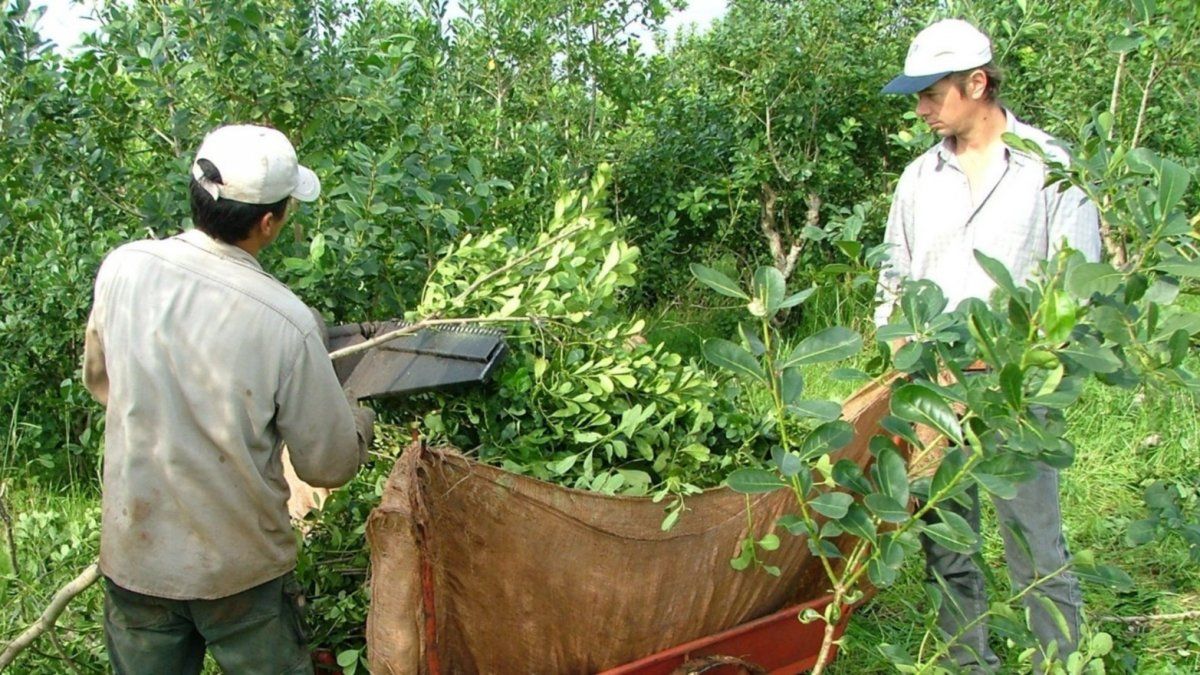In a context like the current one, with high inflation and a red-hot economyit is normal for many to wonder what will happen to the prices on the shelves, since in this free market scenario the programs that tried without success to contain prices in supermarkets and retail stores also ended.
In this case, the failure does not have a direct relationship with whether or not the sector was deregulated, but rather with an enormous number of wrong economic policy decisions that led the country to a lack of control in terms of food prices.
yerbales.jpg
Yerbales, focus of the conflict.
About the price that the yerba mate on the shelf from now on it is difficult to guess a value, since beyond the deregulation and the dominant position that a handful of companies have in the herbal sector, when everything tends to normalize it will be the consumers themselves who will cause a decline. or increase the price.
A priori, with the fall in salary purchasing power, it is to be expected that prices will begin to reach a plateau, the result of thin pockets and consumers who probably do not accept exorbitant values.
But what should worry us is not only what happens on the gondolas. We must look inside the chain, because in the field when it is necessary to “adjust”, the one who suffers the most is -paradoxically- the one who risks the most, the one who sows and then hopes to be able to reap.
yerba mate.jpeg

They deregulate the price of weed.
For now, producers they receive between $350 and $370 per kilo of green leaf put in the drying room. This price is more than 50% above the last value set by the INYM.
This difference “in favor” of the producer arises for two reasons: the first is that the reference value is prior to the measures promoted by the new Government, therefore it is completely outdated. And on the other hand, it is a price that reflects a drop in yields, beyond the agronomic and climatic challenges that the herbalists had to go through, therefore it is the price that arises in a context of low productivity.
The question we must ask ourselves is what will happen to the more than 10,000 settlers (who are mostly missionaries and have farms of a few hectares) who did not have, do not have and will not have negotiating power with respect to the companies in the sector, which are the ones that have the purchasing capacity and the backbone to withstand any type of financial attack. .
Deregulation of yerba mate: Missions against, Currents in favor
As far as he could know Ambit, the two herbal provinces have a completely different composition in this productive framework and that is where the support or rejection of the new scheme is explained. There are some 93 industries that process the total production of the Herbof which two large ones in Currents They handle almost 70% of the grinding (corner leaf).
In Missions 88% of the green leaf in the entire country is produced, but it is Corrientes that industrializes and therefore has the greatest power to pressure producers by setting a purchase price.
YERBA MATE.jpeg

What is the situation of yerba mate.
Yerba mate in few hands
Until now, the INYM It had the task of establishing reference prices during the harvest to guarantee a fair value for producers, protecting them from large industries. These types of situations are the same as those experienced in the 90s, when the market was deregulated. At that time the price of Herb It was on the floor and the business was only done by large companies.
In these cases, what usually happens is that the impact is only suffered by the producer and there are almost no benefits for the consumer, because if a settler leaves the business badly, he sells his farm – which will pass into the hands of a corporation – which is It is likely that productivity will not fall but there will be fewer producers.
Perhaps, in the midst of the economic urgency or the hasty appointment of officials, something unexpected will happen: that the superfluous is put aside and what is really necessary takes center stage, which is the debate that involves what type of producers we want in certain sectors. -like the one in yerba mate– where there are many low-level ones who seek to improve themselves to stay in business. They are producers who want a fair price for their work and not feel that they are condemned to abandon their payments or forced to emigrate to a slum.
Source: Ambito




